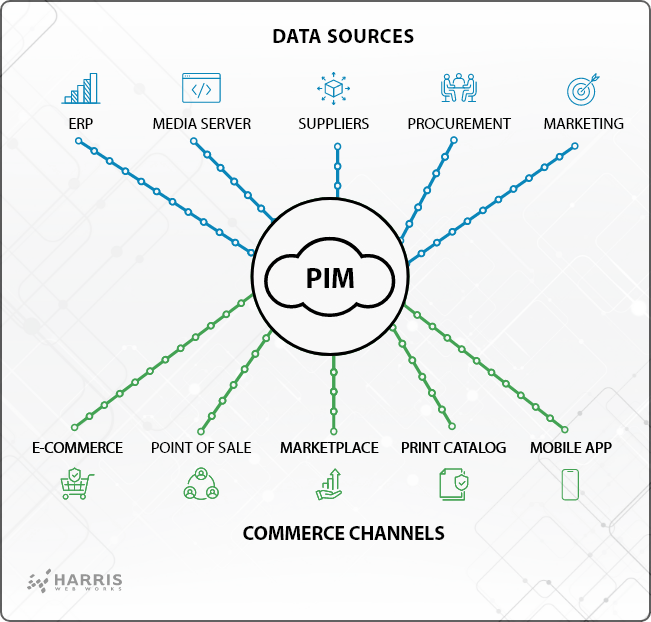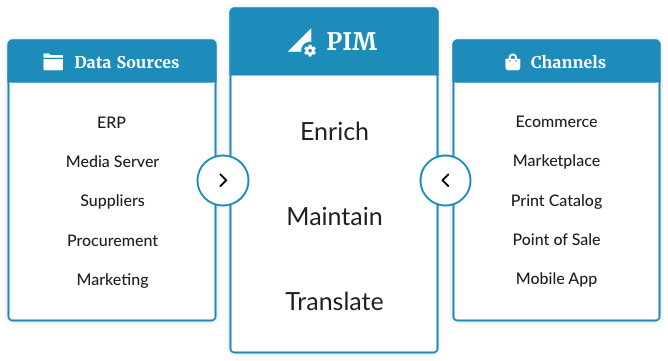A Product Information system provides a centralized platform to manage all the data, content, and other material required to market and sell products. For ecommerce merchants, a PIM can be incredibly beneficial in various ways. Here are some of the primary benefits:
Centralized Data Management: PIM allows all product information to be stored and managed in one central location. This includes everything from basic descriptions to detailed technical specifications, images, videos, and more. It simplifies the process of managing vast numbers of SKUs.
Improved Data Quality: With a single source of truth for all product information, inconsistencies and errors can be reduced. PIM ensures that all data is accurate, complete, and consistently formatted across all sales channels.
Faster Time-to-Market: By streamlining the process of gathering, managing, and publishing product information, PIM helps merchants bring products to market more quickly. This can be a crucial advantage in highly competitive markets.
Enhanced Customer Experience: Providing accurate, detailed, and consistent product information helps to build customer trust and satisfaction. PIM enables ecommerce merchants to deliver a richer, more informative shopping experience.
Multichannel Support: PIM facilitates the management of product information across multiple channels, whether it’s an online store, marketplaces like Amazon, or brick-and-mortar locations. It ensures that customers get the same information wherever they choose to shop.
Scalability: As an ecommerce business grows, managing product information can become increasingly complex. PIM systems are designed to scale with the business, allowing for the efficient management of a growing number of products and channels.
Compliance Management: For merchants who operate in industries with strict regulations around product information (such as healthcare, food, or electronics), PIM helps ensure that all necessary compliance information is accurately and consistently maintained.
Enhanced Collaboration: By centralizing product information, PIM enables better collaboration between different departments within a business. Whether it’s sales, marketing, or supply chain, everyone can access the same up-to-date information.
Cost Reduction: Through automation and streamlined processes, PIM can significantly reduce the administrative overhead associated with managing product information. This helps in cutting down operational costs.
Improved Analytics and Reporting: PIM systems often include analytical tools that enable merchants to track the performance of their products across different channels. This can provide valuable insights that inform future business decisions.
Localization and Personalization: PIM makes it easier to manage localized content for different regions or personalized offers for different customer segments. This flexibility is increasingly essential in a globalized and highly segmented market.
In summary, a PIM system centralizes, standardizes, and streamlines the management of product information, leading to improved efficiency, quality, customer experience, and compliance. For ecommerce merchants, this can translate into higher sales, greater customer satisfaction, and the ability to adapt and scale in a rapidly changing market environment.
This graphic shows some of the leading PIM providers. See comparison of PIM systems to better understand which may best suit your business needs.

August 2, 2023
All Articles



